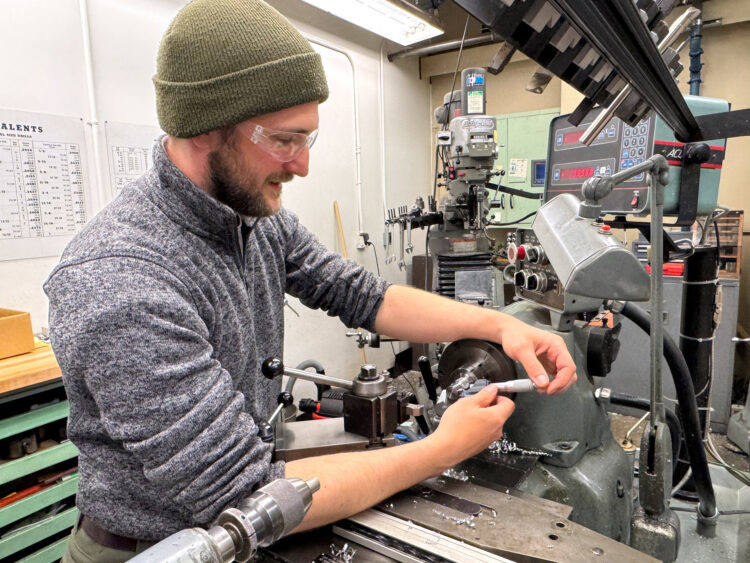Adapted from this Make Magazine article

Arian Gashi is a senior scientific engineering associate at Berkeley Lab, where he runs the machine shop in the Molecular Foundry, a nanofabrication facility with highly advanced tools like focused ion beam (FIB) lithography — think of it as the world’s smallest 3D printer and CNC mill combined. Like Evans, he grew up working on his car and taking things apart, but what he really wanted to be was a musician. He enrolled in Diablo Valley College’s music program and got a job as a music arranger, which proved to be a turning point. “It was not for me — very, very clearly not for me,” said Gashi emphatically.
A family friend threw Gashi a lifeline by helping him get a job as an undergrad research assistant at the Molecular Foundry. “A lot of the job was restocking supplies and making sure equipment was OK. It was kind of the lowest position, and I still felt super-underqualified.”
To make himself more useful, Gashi enrolled in analytical chemistry at Berkeley City College. “What I realized pretty quickly was that Berkeley Lab has tons of chemists and physicists — we’re all good there. Those aren’t skills that are underrepresented in any way. But what is underrepresented is real, hands-on technical skills like machining and welding in the laboratory environment.
A lot of Gashi’s work at the Molecular Foundry is right alongside the researchers and scientists. For example, recently he had to figure out how to hold silicon nitride chips for superconducting applications. Just 100nm thick, these chips were much too fragile for conventional solutions, but Gashi machined a custom chip holder within a day — problem solved.
“Our approach is to have as few barriers between the experimentalist and the people building the instrumentation” as possible, said Gashi. “That’s the beauty of being in a place like Berkeley Lab: If I have a question, I’ll go next door to ask someone, and in many cases it’ll be a leading expert on the subject. We have people from all over the world with all sorts of different backgrounds — even a community-college music kid.”
Read more in the full article.

